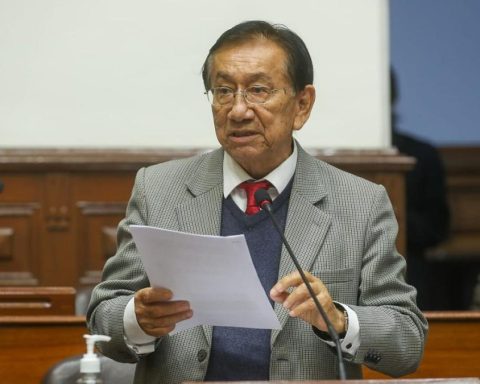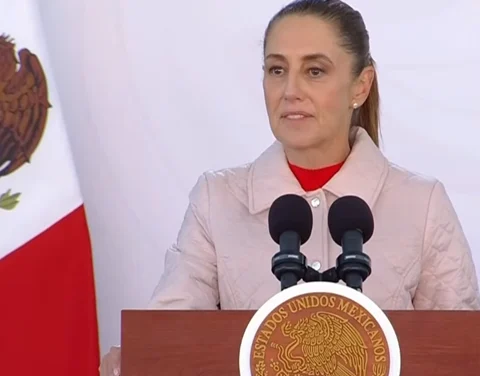Lilian Hernandez Osorio
The newspaper La Jornada
Tuesday, September 17, 2024, p. 7
President Andrés Manuel López Obrador, as an authority of the federal government, and Claudia Sheinbaum, as a witness, signed the decree of judicial reform on a historic day
which was published in the evening edition of the Official Gazette of the Federation (DOF) on September 15.
As the president had anticipated, the changes established in this reform that was approved by the Senate on Wednesday, September 11, were published on Sunday, despite the fact that a Colima collegiate court ordered the suspension of said publication in the DOF, with which this controversial amendment came into effect yesterday (September 16).
The amendments highlight that the administration of the Federal Judicial Branch will be in the hands of a judicial administration body, while the discipline of its personnel will be in the hands of the new judicial disciplinary court, which replaces the Judicial Council.
The decree amending, adding to and repealing provisions of the Constitution regarding the reform of the Judicial Branch details that the Supreme Court of Justice of the Nation (SCJN) will be composed of nine members instead of 11; its presidency will be renewed every two years on a rotating basis, all ministers will receive a lower income than the President of the Republic, their term of office will be 12 years and not 15 as it was before and No person who has been a minister may be elected for a new term.
.
It also stipulates that there will be a faceless judge when dealing with organized crime, to preserve security and protect his identity.
The reform, published on a symbolic day commemorating Mexico’s Independence, also states that the Senate will publish the call for the integration of the list of candidates within 30 calendar days following the installation of the first ordinary session of this year, but for the first time, it has 30 days after the publication in the DOF to have the list.
With the published modifications, article 96 of the Constitution stipulates that the ministers of the Court, as well as magistrates of the Superior Chamber and the regional chambers of the Electoral Tribunal of the Judicial Branch of the Federation (TEPJF), magistrates of the Judicial Disciplinary Tribunal, and circuit magistrates, as well as District judges, will be elected freely, directly and secretly by the citizens on the day of the ordinary federal elections
.
Election day will be held on the first Sunday of June 2025, all challenges must be resolved on August 28, and the elected judges will be sworn in before the Senate on September 1.
The decree establishes that the Senate will receive the applications and send the lists to the National Electoral Institute (INE) no later than February 12, 2025, in order to organize the electoral process.
In addition to organizing the elections of judges, the institute also has the constitutional mandate to carry out the election counts, publish the results and deliver certificates of majority to the candidates who obtain the highest number of votes, assigning the positions alternately between women and men.
It will also declare the validity and send its results to the TEPJF or to the full Court in the case of electoral magistrates, who must resolve the challenges before the Senate installs the first ordinary session of the corresponding election year.
Among the adjustments, the decree states that the judicial administration body will determine the number, division into circuits, territorial jurisdiction and specialization by subject matter. In addition, the two chambers of the highest court, which currently resolve civil and criminal matters, as well as administrative and labor matters, will disappear.
INE must begin preparations
The preparatory stage for the election of judges will begin with the first session of the General Council of the National Electoral Institute held during the first seven days of September of the year prior to the election.
Under this decree, candidates will have equal access to radio and television, according to the distribution of time determined by the INE. However, they may participate in debate forums organized by the institute itself or in those organized by the public, private or social sector. on equal terms
.
“For all elected positions within the Judicial Branch of the Federation, public or private financing of their campaigns will be prohibited, in addition to the fact that political parties and public servants are prohibited from carrying out acts of proselytism and may not position themselves for or against any candidate.
The duration of the campaigns will be 60 days and in no case will there be a pre-campaign stage
in addition to the fact that there will be sanctions for candidates or public servants whose statements or proposals exceed or contravene constitutional parameters.”
Six months to resolve issues
According to the new reform, all circuit judges, magistrates and ministers will have to resolve the cases under their charge within a maximum of six months, counting from the date of their being heard. If this deadline is not met and no sentence has been issued, the court hearing the case must immediately notify the Judicial Disciplinary Court and justify the reasons for the delay.
Circuit magistrates and district judges will hold office for nine years and may be re-elected consecutively each time their term ends.
Amendments to federal laws
The Congress of the Union will have 90 calendar days from the date of entry into force of this decree to make the necessary adjustments to federal laws to comply with it. Meanwhile, the states must make the adjustments to their local constitutions within a maximum period of 180 calendar days.
















